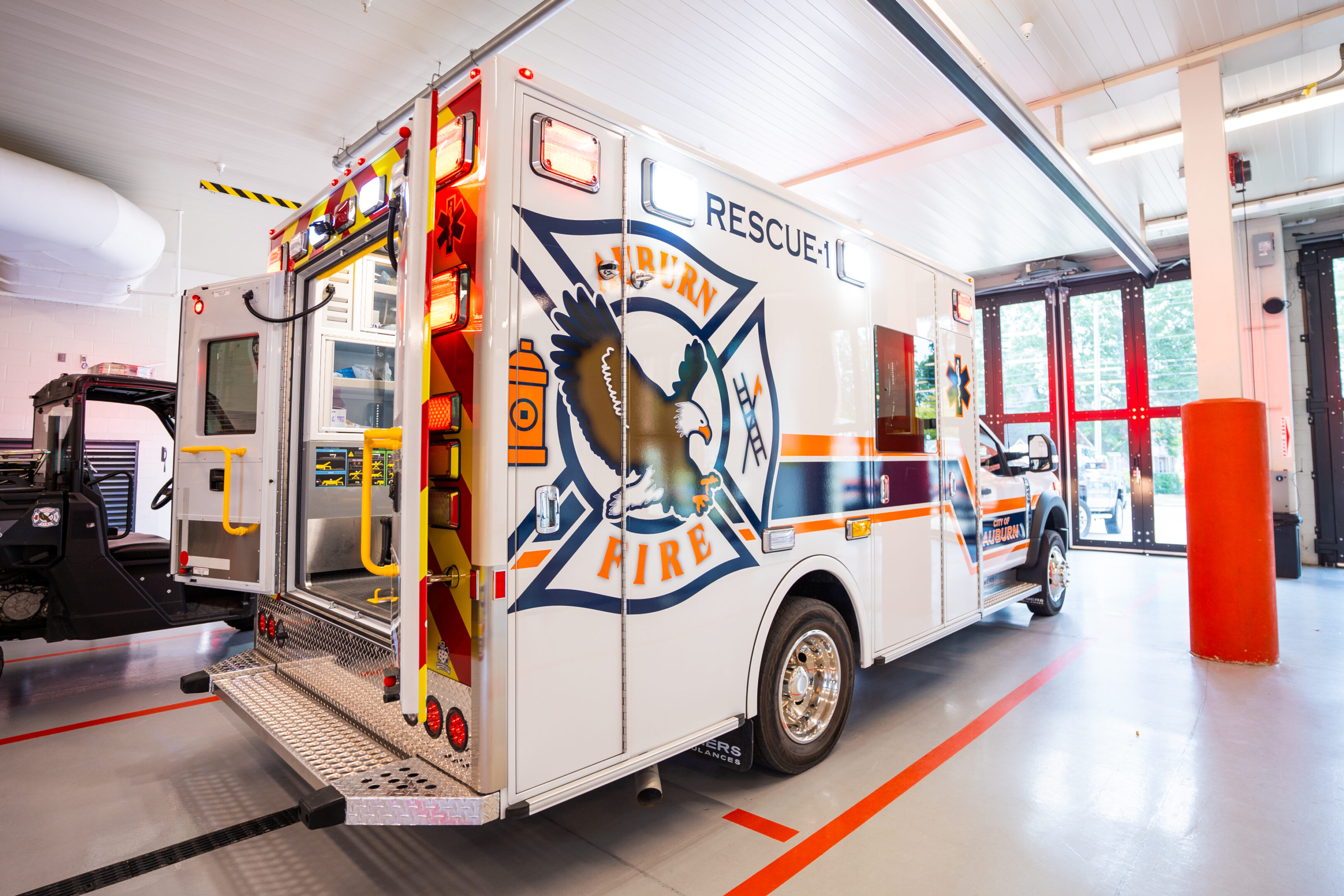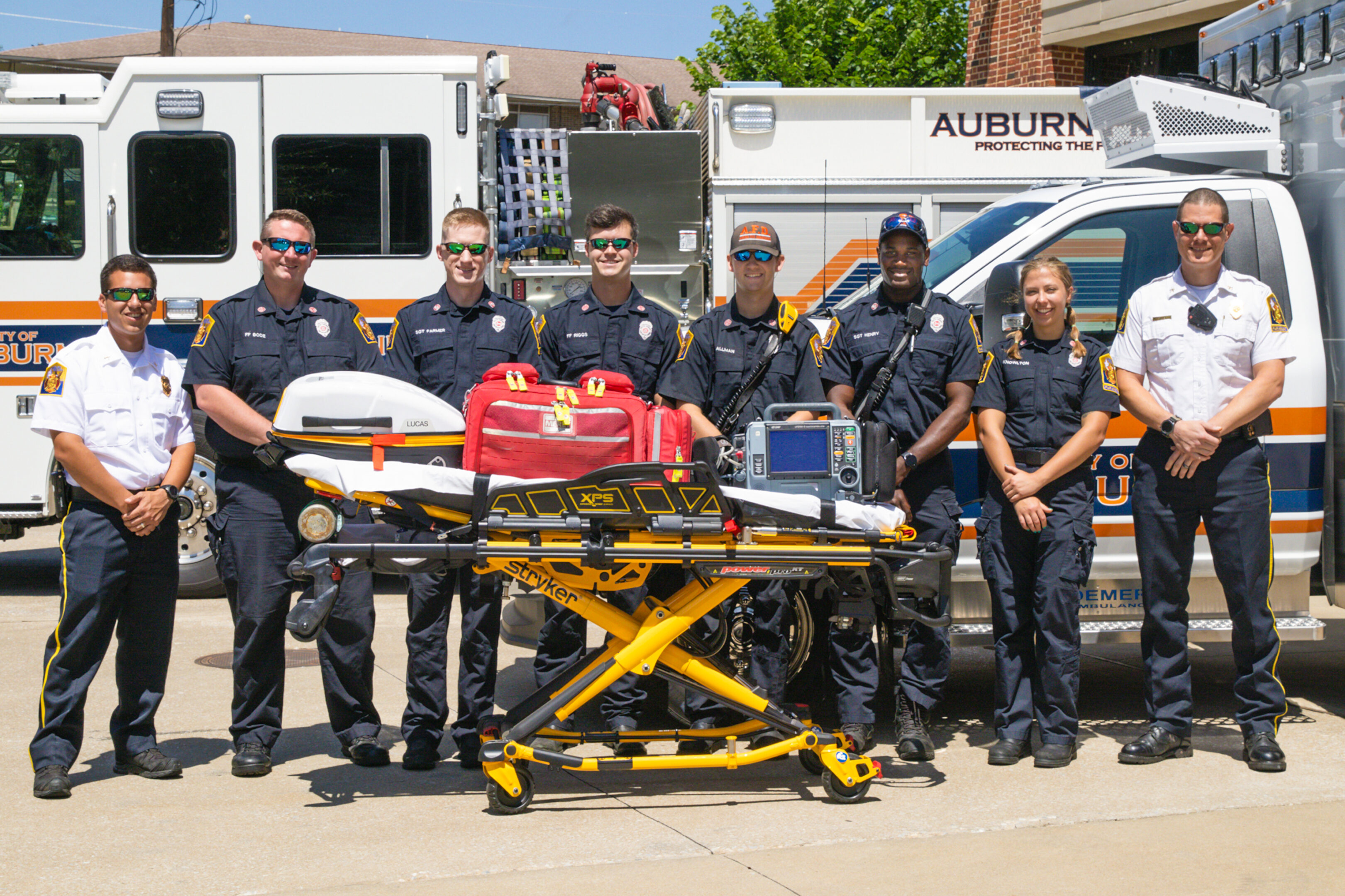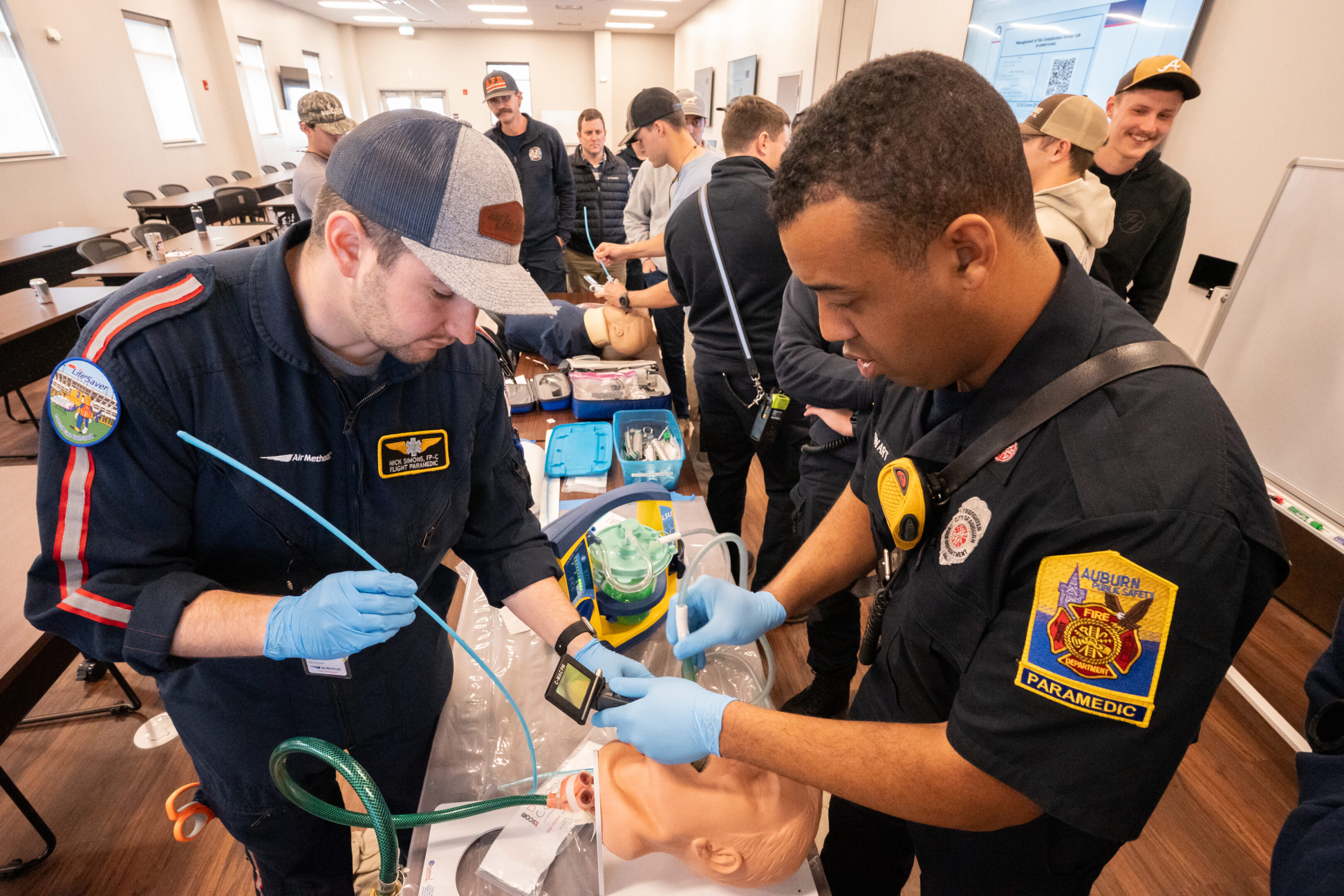
Expanding care & building careers at Auburn Fire
Since earning its designation as an advanced life support provider, Auburn Fire has stepped up their care for all levels of need.
“It was difficult to wait and want to do more,” recalls Auburn Fire EMS Officer Garrett Kemp. “That’s why becoming an advanced life support (ALS) provider was such a big step for us and the patients we serve.”

A medical emergency can strike at any moment, and when it does, firefighters are often the first to arrive. In October 2023, the Auburn Fire Department became a licensed ALS provider, a major milestone that transformed how crews respond and provide medical care.
Before ALS, Auburn Fire provided the best care the law allowed — checking vital signs, performing CPR, bandaging wounds — while waiting for licensed paramedics to arrive on the scene of medical emergencies.
Now, two years later, Auburn Fire includes 32 state-licensed paramedics and 13 advanced EMTs — all firefighters who took on new challenges and expanded their skills through the department’s greatly expanded medical program.
Auburn Fire's ability to provide the same advanced life support care as an ambulance crew but from ALS-equipped fire trucks was a pivotal shift. Patients receive faster advanced care, and firefighters can provide critical life-saving skills previously outside their reach. Nearly all fire apparatuses carry bags stocked with specialized equipment including lifesaving medications, airway management tools and cardiac monitors. When needed, Auburn deploys its own paramedic transport unit to get patients to the hospital without delay.
“I am tasked with ensuring all aspects of our emergency medical services operate smoothly,” says EMS Officer Garrett Kemp. “This means sending firefighters to EMT and paramedic schools, purchasing and maintaining lifesaving equipment, keeping our medical certifications up to date and reviewing every response for quality.”

Achieving a paramedic certification isn’t easy. Firefighter paramedics complete two years of training backed by tools that put hospital-level care in the field: cardiac monitors that detect major conditions instantly, defibrillators that restore heart rhythms and automated CPR compression devices that deliver steady compressions without stopping. In a crisis, even the strongest first responder can tire after minutes of CPR, but Auburn’s LUCAS CPR machines keep a perfect rhythm. Used 23 times in the past year, these machines help increase a patient’s chance of survival.
Since 2023, Auburn Fire has performed more than 1,000 advanced interventions and cared for over 9,000 patients. In a city of more than 83,000, Auburn Fire’s ALS providers are touching lives across every corner of the community. Their work goes far beyond emergencies: last year alone, firefighters completed more than 7,500 service calls, 1,300 fire inspections and 28,000 hours of training, all while hosting 244 public education events to keep the community safe.
The numbers tell a powerful story: lives saved, families kept whole and firefighters growing in skill and responsibility. Two years of ALS certification have not only raised the standard of emergency care in Auburn. They’ve built a department that is stronger, more skilled and more dedicated than ever to the people it serves.